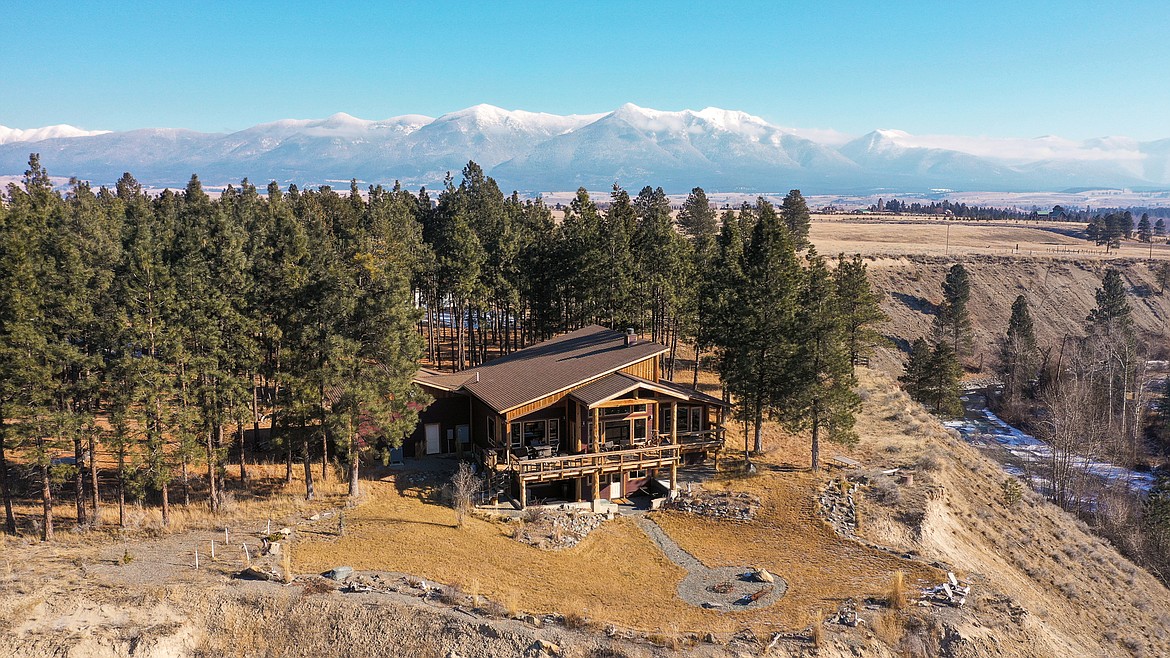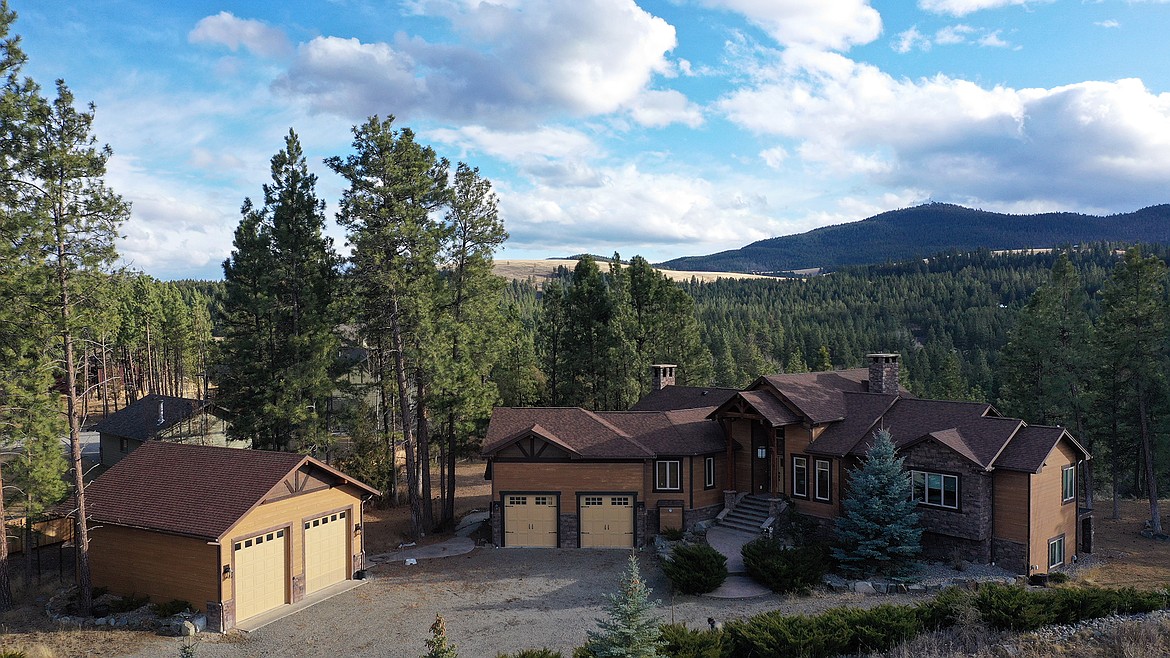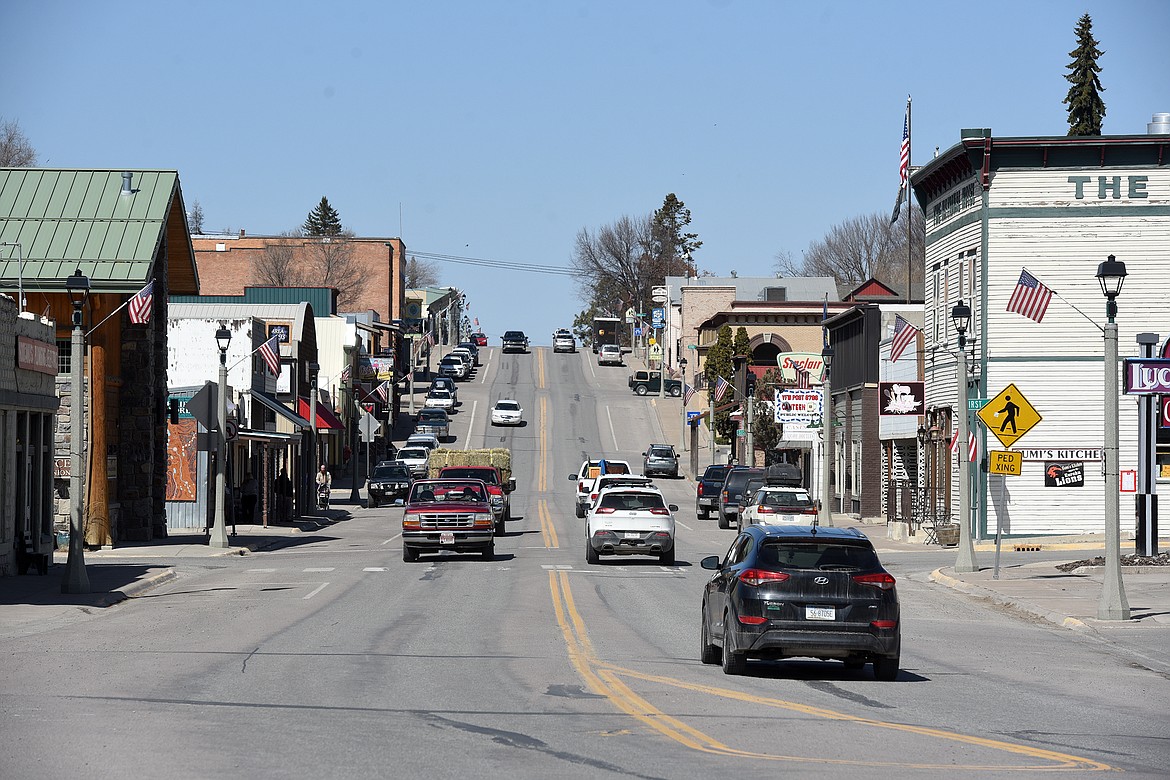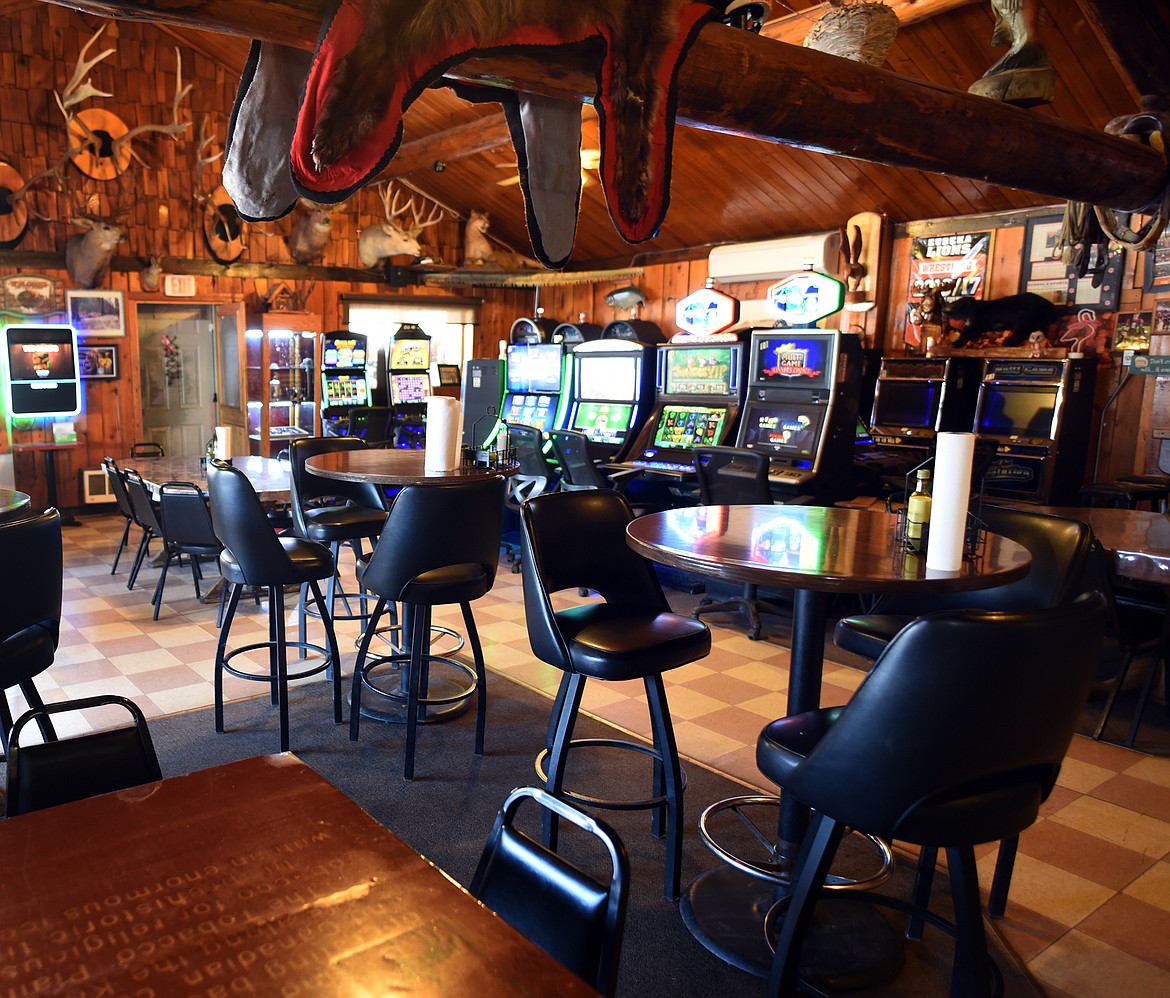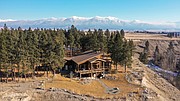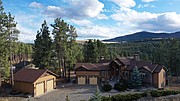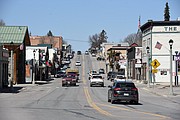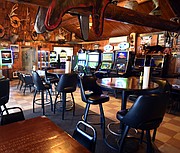Border closure continues to affect Tobacco Valley businesses
A lone trucker sat sipping coffee in Dave Clark’s First and Last Chance Bar Tuesday morning.
For the small establishment that sits just a stone’s throw away from the United States-Canada border in the Port of Roosville, an empty room has become an unwelcome, but familiar sight over the past 12 months.
“Things have just been slow for us for far too long now,” Clark commented from the window of the duty free shop on the north side of the bar.
Built by Clark’s father in 1972, the popular small-town watering hole used to be packed on weekends, but that all changed when the U.S. government closed the border March 21, 2020.
Overnight, the once busy Port of Roosville went from a bustling border crossing to a quiet stretch of road with little to no traffic.
According to the U.S. Department of Transportation Bureau of Transportation Statistics, the Port of Roosville saw 312,000 crossings in 151,956 vehicles in 2019, a number that was down to just 44,000 crossings in 23,801 vehicles in 2020, with less than 9% of that number crossing after March.
As he anxiously waits from month to month to see if the border will reopen, it’s all Clark can do just to keep his doors open.
“Our revenue is down 60 to 70% from where it was before the border closing,” Clark admits. “I don’t know what I would have done without the two rounds of PPP and state grants I have been able to get.”
While the federal Paycheck Protection Program has helped keep the bar open, it has been a struggle for Clark and many other businesses in the Eureka area ever since the government turned a once invisible line into a true barrier between friends and families. For the many Americans and Canadians of the Tobacco Valley who once saw themselves as one big community, the forced separation has been tough.
CLARK IS not alone in his struggles. A recent poll by the Eureka Area Chamber of Commerce found that many businesses in the area have been affected by the border closure.
Along with the First and Last Chance Bar, other area bars have been particularly hard hit. The Frontier Bar in Rexford reported a drop of 60 to 70% in its sales in 2020, while its RV and camping business all but ceased.
Federal grants and strong local support helped keep the Trego Pub open, but with a nearly 30% loss.
Local restaurants reported losses of 50% or more while Eureka’s historic Majestic movie theater estimated its losses at 60 to 75% in 2020.
While the community came together to support fundraisers for several worthy causes during the pandemic, nonprofit organizations such as Hands for Hope and the Mt. Marston Biker Rally reported donations being down more than 70%.
WHILE MANY businesses have suffered since the border’s closing, others have seen increases in sales. Eureka Hardware reported an increase in business as homebound locals began working on the projects they had been putting off for years.
For others, like Montana Market Manager Mike Cole, business has held pretty steady, just with some new faces.
“We’ve always done well with our local customers, there’s no doubt about that,” he said from behind the busy counter of his extensive fresh meat section Tuesday. “Now, instead of seeing traveling Canadians come through the store, we are seeing more domestic travelers and new faces just from the people moving here.”
While the market always has offered delivery to local areas, new curbside service and online ordering were put in place just in time to help keep business flowing during last year’s shutdown.
The small mom-and-pop grocery store is proud to maintain its small-town feel where people stop in the aisles for good conversation and to catch up on the latest news. It’s an atmosphere Cole says he will do anything to maintain.
“We do not want to change anything more than we have to,” he said. “Of course we had to put up the plastic barriers and wear masks, but we have really tried to maintain who we are and keep things as normal as possible.”
KEEPING BUSINESS as normal as possible is also a goal for Cafe Jax owner Tom Meester. While his business has been down just over 50% in the past year, he doesn’t just blame the border shutdown for the loss. Mask mandates and new health guidelines have led to offended customers and several unwanted confrontations over the past year.
“We received a lot of blowback by trying to follow the rules,” he said. “We had many regular customers who refused to come in if they were required to wear a mask, even if it was only from the door to their table. It makes me feel bad for my servers, who make their money from tips. They had to put up with some very disgruntled people, and they shouldn’t have to.”
With 70 to 75% of their summer sales coming from Canadian visitors in the past, Cafe Jax has turned to curbside and takeout service to help keep the doors open. While Meester was able to keep the majority of his core staff last year, he was unable to hire the usual 10 to 15 extra workers that help him get through the summer each year.
“With the border being closed, we are pretty much the end of the road. That really cuts down on the number of people coming through here. There’s not much of a reason to come up here unless you are going to Canada,” Meester said. “At first there were many people that were excited about the prospect of not having all the Canadians coming down and filling up our lakes and recreation areas. Now, people are really starting to realize just how much our community depends on Canadian dollars coming in.”
FROM BEHIND his desk at Glacier Bank, loan officer Jon Leonard has had a front row seat to the financial changes the border closure has brought to the Eureka area. While the shutdown has been tough on many local businesses, there are other industries that are flourishing. Returning from a three-day weekend Tuesday, Leonard once again found a stack of home loan requests waiting on his desk.
“It’s amazing what COVID has done to this area in general and how it has affected everyone, especially what I call the ‘Great COVID Migration.’ There have been so many people looking for land and homes in the area,” he said. “The border closure has affected the banking here. Our volume is anywhere from 30 to 50% Canadian here, and has been for a number of years. The void that was left with the closing of the border has been picked up with all of the domestic people looking to move here now.”
While the housing boom has been great for those looking to move to the area, the border closure has been rough on the many Canadian home and land owners in the area who have been unable to reach their properties for more than a year.
“Our Canadian friends are seeing for the first time really that this border can be closed and it can be closed indefinitely. Many are quite concerned about how hard it is for them to reach their properties down here right now,.” Leonard said. “I've been talking with a lot of Canadians who are really concerned about what they hear is happening down here with so many new people moving into the area. They are really quite bummed about that.”
For Coldwell Banker Real Estate owner and agent Gary Mason and other area Realtors, COVID-19 has helped lead to an unprecedented growth in sales recently.
“I’ve been in the business for 25 years, but I have never seen anything like this,” Mason said. “We had a big boom around 2005, but this seems to be more intense, and it’s not just the out-of-state buyers. Yes, we have seen a lot of Texans and a lot of Californians, but our buyers have really been from all over the place. We are seeing plenty of Montana people as well, from Bozeman and the Flathead Valley. Life seems to be getting more busy elsewhere around the state and people seem to like the more laid back atmosphere of Eureka.”
The rush on the housing market has led to a significant rise in prices, with Mason reporting that homes that were selling for $200,000 just 18 months ago now fetch as much as $340,000 or more with land prices more than doubling over the same time period.
“We are seeing a lot of sight-unseen purchases, especially land,” he said. “It’s a bit of a disadvantage for people who are trying to move here, because those who have to get financing are almost at the end of the line because of all the cash offers. That seems to be hurting locals the most, the ones who are going through all the steps to try to get a home loan.
WITH MANY Canadian owners unable to reach their properties and the market boom, Mason said many Canadians have decided to sell their homes in the area, something he feels may lead to a large shift in the demographics of the local population.
There may be a divider there at the border, but there are many Canadians that really are a part of our town and a part of our valley,” he said. “Things change, though. I hate to say it, but with all of the new people moving into the area, we might end up with a stoplight in Eureka someday. I guess you can’t stop the march of progress.”
While change seems to be inevitable, Chamber of Commerce Secretary Blanche Flanagan said she hopes to see the area return to normal after the border is eventually reopened.
“We are used to the Canadians and we welcome them. The people that have moved here during COVID are not used to them. Some of the people who have just moved here might not understand just how close we are with our Canadian neighbors. We have always been a big family and we want it to stay that way,” she said. “It used to be that I would come to town and I maybe would not know one or two people that I saw and now when I come to town if I know one or two people, then I am lucky.”
Reporter Jeremy Weber may be reached at 758-4446 or jweber@dailyinterlake.com




